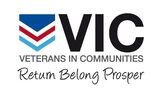How Peer Support Can Help Veterans
The benefits of a ‘veteran to veteran peer support’ programme to another veteran or a member of the Armed Forces Community is that it is delivered by either a veteran who may have perhaps experienced some of the difficulties themselves or by somebody who has awareness of the military culture and the difficulties they can experience on leaving the armed services.
It can be very effective for the veteran as there is already a common shared experience of service life and the culture surrounding anybody who has served in uniform. They do not even have had to have served in the same branch of the services (Army, Royal Navy, Royal Marines, Royal Air Force or the Reserves), the same Regiment, or even the same Corps as another veteran. The deployments or operations they may have served in will be different on the age of veteran accessing Peer Support, but the experiences will be very similar.
A good peer support programme can;
It can be very effective for the veteran as there is already a common shared experience of service life and the culture surrounding anybody who has served in uniform. They do not even have had to have served in the same branch of the services (Army, Royal Navy, Royal Marines, Royal Air Force or the Reserves), the same Regiment, or even the same Corps as another veteran. The deployments or operations they may have served in will be different on the age of veteran accessing Peer Support, but the experiences will be very similar.
A good peer support programme can;
- · Reduce their sense of isolation.
- · Raise their self-esteem.
- · Increase their motivation levels.
- · Increase their confidence levels.
- · Develop and share skills with other like-minded people.
- · Understand their personal behaviours and how it impacts on those around them.
- · Participate in practical and therapeutic activities with others with similar and shared interests.
- · Share coping strategies with others whether on an individual basis or in a group setting.
- · Confidence in challenging attitudes and beliefs.
- · Build new social networks and/ or re-establish existing social networks.
- · Take responsibility for their wellbeing and their actions, and the understanding of their next stages of ‘moving on’.
- · Helps reduce stigma and discrimination that enables them to be seen as people, not as someone with a mental health illness.
- · Be a temporary role in achieving the veteran’s goals and aspirations.
- · Provide opportunities that the veteran may not have been aware of.
- · Be an effective means of transfer of knowledge, skills and awareness.
- · Reduce resilience on statutory health services.
- · Improve mental health, emotional resilience and wellbeing.
- · Be a very empowering experience to the veterans who participate.
- · They can listen to other veteran’s experiences which can help them learn what is happening in their lives.
- · Through Peer Support access other services; these can be mental health or welfare. It many cases it can be a combination of both.
